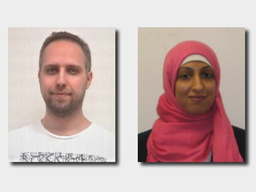Online on Blackboard Collaborate
Location
Online
Date & Time
April 28, 2021, 11:00 am – 12:00 pm
Description
| Session Chair: | Eswar Kamara |
| Discussant: | Dr. Jinglai Shen |
Speaker 1: Vahid Andalib
- Title
- A Repairable System with Two Spare Units and Two Repair Facilities Serviced by Two Types of Repairers
- Abstract
- We study a one-unit repairable system supported by two identical spare units on cold standby and serviced by two types of repairers when there are two repair facilities. The model applies, for instance, to hydraulic systems in the aviation industry. The failed unit undergoes repair either by an in-house repairer within a random patience time T, or else by a visiting expert repairer. The expert repairs one or all failed units before leaving and does so faster but at a higher cost rate than the regular repairer. Since there are two repair facilities, we allow the regular repairer to begin repair or to continue repair beyond T if the expert is busy. Two models arise depending on the number of repairs done by the expert during each visit. We compare these models based on the limiting availability A∞ and the limiting profit per unit time ω using semi-Markov processes when all distributions are exponential. As anticipated, to maximize A∞ the expert should repair all failed units. Furthermore, given all cost parameters, we determine the optimum number of repair facilities and optimum number of repairs the expert should complete to maximize ω.
Speaker 2: Zainab Almutawa
- Title
- New Significance Test Methods for Fourier Analysis of Geophysical Time Series
- Abstract
- In this presentation, I will introduce the traditional discrete/ continuous Fourier transform to analyze finite-length time series. We will discuss how the discontinuities at the data boundaries will distort the Fourier power spectrum of the data in the high frequency domain. Hence, only the middle part of the Fourier power spectrum is real. This suggests a new method which aims to decompose the time series into two parts, and this introduce what is called the modified Fourier power spectrum. This new method is based on statistical framework. Moreover, the new method will extract the intrinsic feature of a geophysical time series very well. A comparison between the traditional Fourier tests and the decomposition method is provided by analyzing the Arctic Oscillation time series.
Tags:
